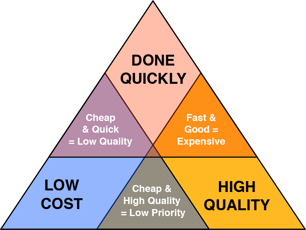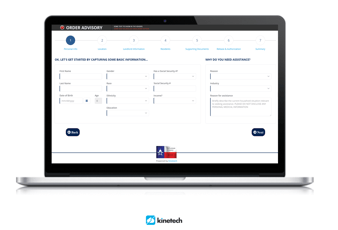Is your city ready to handle the additional burden that an increased population places on infrastructure and city services?
The world population is expected to increase and stabilize somewhere around nine to 11 billion people by 2100. A significant portion of this growth is expected to occur in cities, because of the economic opportunities available to a city’s inhabitants. As stewards of the future, business and political leaders must embrace long-term thinking to support this growth.
This includes investing in infrastructure like roads, public transportation, water purification, and sanitation but the best cities will also invest in digital services. Why? With the proliferation of smartphones, citizens and businesses expect government services to be readily available, easy to consume, and at low or no cost. It does not hurt that the potential cost savings is massive.
McKinsey, a strategy consulting firm, suggests government digitization could free up to $1 trillion dollars annually in economic value, through improved cost and operational performance.

It's time to for governments to embrace innovation, agile development, and cloud technology. The convergence of these ideas, when applied correctly, provide cost savings and operational improvements that cannot afford to be missed, regardless the size of your city.
Michael Guido, CEO of Kinetech.
Doing More with Less
With increasing budgetary pressures it is time for government to embrace innovation, agile development, and cloud technology. The convergence of these ideas, when applied correctly, provide cost savings and operational improvements that cannot afford to be missed, regardless of the size of your city. Cloud technology allows governments to serve their citizens needs faster and cheaper while evolving with changing needs.
Digital services can drive significant cost-savings for municipalities by eliminating low-value monotonous tasks, integrating disparate systems / processes, improving internal operations, crowd-sourcing information, and extending access of programs to citizens when it’s convenient for them. These integrated web and mobile solutions enhance municipal services, and save tax-dollar revenue to be allocated for other programs. In the past, this type of personalized experience would cost local governments millions of dollars, but the cost of software has dropped 67% since 1997. Service-based contracts and open-technology allows greater collaboration across functions and departments.
Better Service
These online services also provide greater access for rural populations, improve connectivity for those with disabilities, and offer options for those whose lifestyle and work schedule do not conform to typical office hours. Transforming paper-based applications into a digital format can eliminate paper-waste, provide a smoother customer experience (no need to print / scan documents), and automatically notify applicants when the status of their request is changed. Informational websites and portals are not enough. Government must take a digital first approach to empower citizens to interact with their representatives and request available services.
Learn why the City of San Antonio selected Kinetech to digitize their Utility Credit Application.
When public-sector digital transformations succeed, citizens and businesses benefit from better access, and governments recognize tangible savings while operating more nimbly to serve their constituents.



